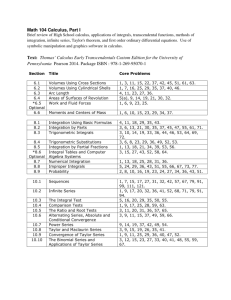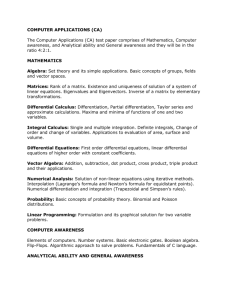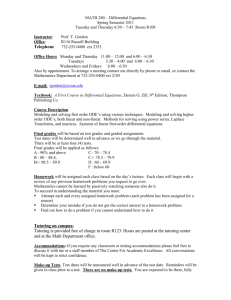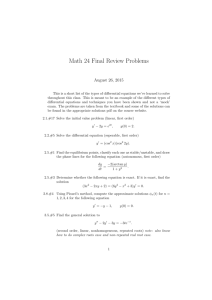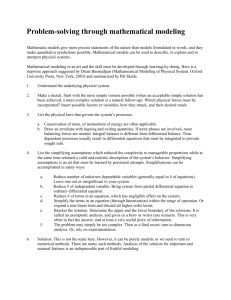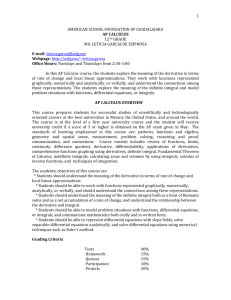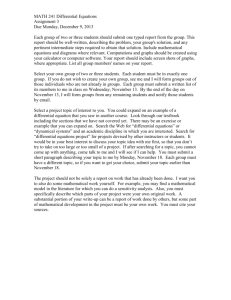Calculus 2: Multivariable Calculus and Differential Equations
advertisement
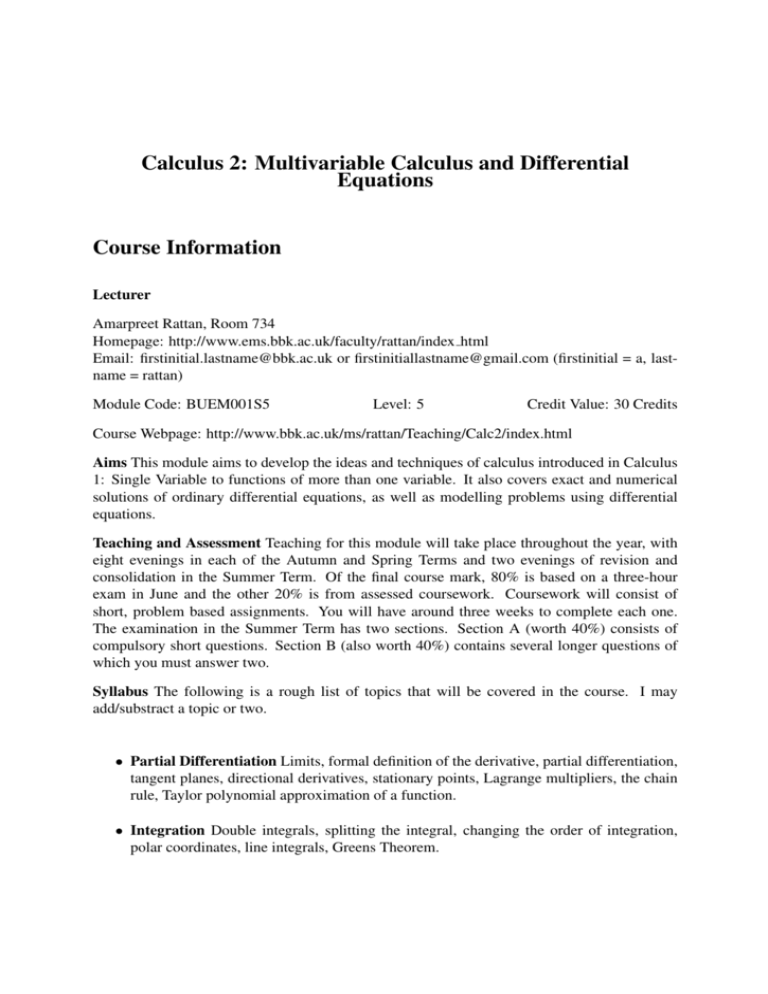
Calculus 2: Multivariable Calculus and Differential Equations Course Information Lecturer Amarpreet Rattan, Room 734 Homepage: http://www.ems.bbk.ac.uk/faculty/rattan/index html Email: firstinitial.lastname@bbk.ac.uk or firstinitiallastname@gmail.com (firstinitial = a, lastname = rattan) Module Code: BUEM001S5 Level: 5 Credit Value: 30 Credits Course Webpage: http://www.bbk.ac.uk/ms/rattan/Teaching/Calc2/index.html Aims This module aims to develop the ideas and techniques of calculus introduced in Calculus 1: Single Variable to functions of more than one variable. It also covers exact and numerical solutions of ordinary differential equations, as well as modelling problems using differential equations. Teaching and Assessment Teaching for this module will take place throughout the year, with eight evenings in each of the Autumn and Spring Terms and two evenings of revision and consolidation in the Summer Term. Of the final course mark, 80% is based on a three-hour exam in June and the other 20% is from assessed coursework. Coursework will consist of short, problem based assignments. You will have around three weeks to complete each one. The examination in the Summer Term has two sections. Section A (worth 40%) consists of compulsory short questions. Section B (also worth 40%) contains several longer questions of which you must answer two. Syllabus The following is a rough list of topics that will be covered in the course. I may add/substract a topic or two. • Partial Differentiation Limits, formal definition of the derivative, partial differentiation, tangent planes, directional derivatives, stationary points, Lagrange multipliers, the chain rule, Taylor polynomial approximation of a function. • Integration Double integrals, splitting the integral, changing the order of integration, polar coordinates, line integrals, Greens Theorem. 2 Calculus 2 • Applications simple harmonic motion, damped and forced oscillations, population models, epidemiology, finance and economics. • Ordinary Differential Equations First order differential equations, variable separable, exact differential equations, integrating factors, homogeneous differential equations, some special families of first order differential equations, second order differential equations, homogeneous and non homogeneous differential equations with constant coefficients, some special families of second order differential equations numerical methods for finding approximate solutions of a differential equation. • Hyperbolic and Special Functions Hyperbolic functions, sinh, cosh and tanh, gamma functions, beta functions, properties of hyperbolic and special functions, application of hyperbolic and special functions to evaluate certain integrals. Resources The course notes will be the main resource for the course. All you need to know for the final exam will be in the notes and lectures. In addition to the marked assignments, the notes contain practice problems. You are advised to do most of these problems. Mathematics is learned through practice, trial and error and you will put yourself at a considerable disadvantage if you do not do the practice problems. Solutions will be provided. Recommended Texts In addition to the course notes, some students my find the following books useful. This list is short, especially compared to the large number of books out there that deal with multivariable calculus. • RA Adams, Calculus of several variables, Addison-Wesley • RA Adams, Calculus: A complete course, Addison-Wesley • K Binmore and J Davies, Calculus: Concepts and Methods, Cambridge University Press • J Stewart, Calculus, Thomson Brooks/Cole

